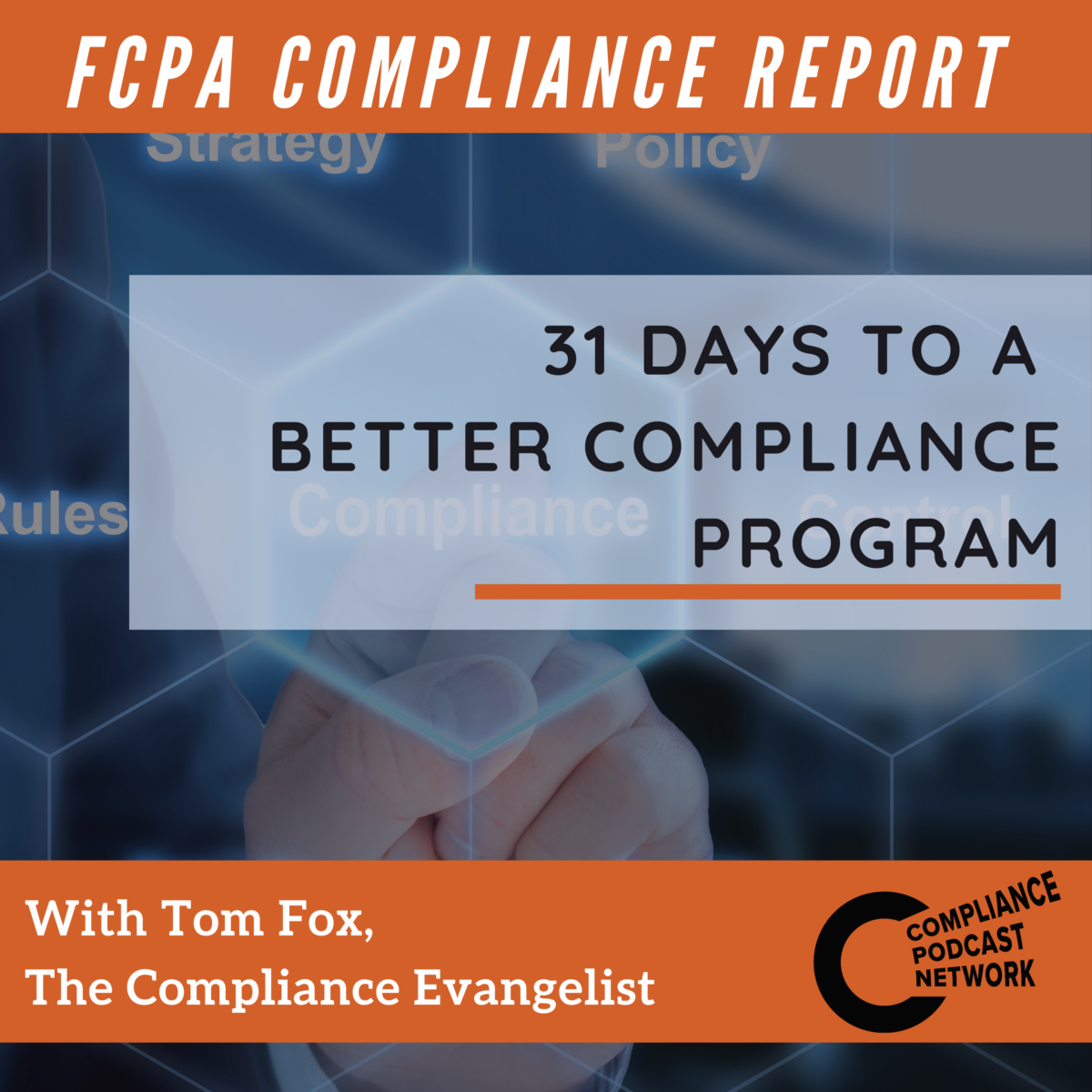Welcome to a special podcast series on the Compliance Podcast Network, 31 Days to a More Effective Compliance Program. Over these 31 days series in January 2025, I will post a key part a best practices compliance program each day. By the end of January, you will have enough information to create, design or enhancement a compliance program. Each podcast will be short, at 6-8 minutes with three key takeaways that you can implement at little or no cost to help update your compliance program. I hope you will plan to join each day in January for this exploration of best practices in compliance.
In today’s episode, we delve into the significant updates in the evaluation of corporate compliance programs, focusing on messaging apps, internal controls, and adequate compensation. The revised language in the ECCP highlights the DOJ’s increased scrutiny on the use of messaging apps, emphasizing the need for tailored policies that align with a company’s specific risks and business needs. We also discuss the critical importance of internal controls as minimum expectations set by the DOJ, and the necessity of continuous monitoring to manage these risks effectively. Lastly, we examine the newly added provisions related to adequate compensation, ensuring that compliance teams are empowered and protected against retaliation. The episode concludes by summarizing three key takeaways for compliance professionals: the growing importance of communications compliance, the need for robust and functional internal controls, and the imperative of adequately compensating compliance personnel.
Key Highlights
- Messaging Apps and Compliance
- Internal Controls and Risk Management
- Adequate Compensation for Compliance Teams
Resources
Listeners to this podcast can receive a 20% discount to The Compliance Handbook, 5th edition by clicking here.




